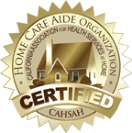It is wise to immunize; it’s your best shot against the flu. But you have to act quickly because it takes about two weeks to develop immunity. Research shows that the immune system functioning declines with advanced age. And older adults with chronic illnesses are generally at increased risk for developing flu-related complications.
The flu virus can be easily passed from one person to another; it is spread by inhaling droplets coughed or sneezed into the air by an infected person or by coming into contact with their nasal secretions. To protect yourself from getting the flu, avoid close contact with sick people. Stay at least 6 feet away from others if they are coughing or sneezing. Wash your hands often with soap and water. If soap and water are not available, use an alcohol-based hand rub. Avoid touching your eyes, nose, and mouth. Germs spread this way. Get enough sleep, manage your stress,and eat a variety of healthy foods. Drink plenty of fluids. Stay active through regular exercise that your health care provider has approved. Avoid exposure to smoke. And use a humidifier to keep air moist.
There are many symptoms shared by colds and flu. These may include: a cough, sneezing, sore throat, runny or stuffy nose, fever and muscle aches, headaches, and tiredness. Flu symptoms are usually more severe. Call your health care provider for advice if you experience: fever that is 100ºF or greater, muscle aches that are sudden and unexplained, body chills not related to a cold environment, extreme fatigue, and stomach symptoms (nausea, vomiting and diarrhea).
There are drugs your doctor may prescribe for treating the flu called “antivirals.” These drugs can make you better faster and may also prevent serious complications. If you catch the flu, stay home for at least 24 hours after your fever is gone and avoid contact with other people. If you must leave home, for example to get medical care, wear a facemask if you have one, or cover coughs and sneezes (use a tissue or your upper sleeve–not your hands). Throw the tissue in the trash after you use it. And wash your hands often to keep from spreading flu to others. Emergency warning signs include difficulty breathing or shortness of breath, pain or pressure in the chest or abdomen, sudden dizzines, and confusion.
It helps to stay informed. If an outbreak of flu occurs, follow public health advice or visit www.flu.gov for more information.







